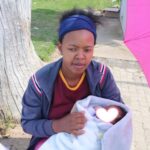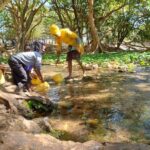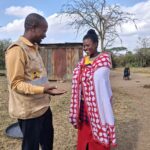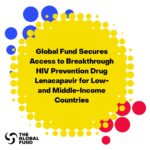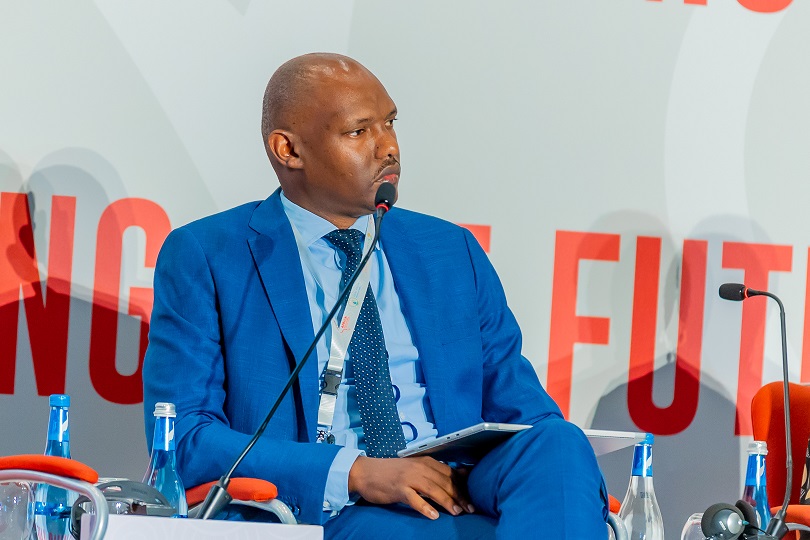
By Godfrey Ombogo
African governments have been urged to increase funding and support for research on key emerging climate change issues now more than ever.
As the curtains fell on the Africa Health Agenda International Conference (AHAIC) 2023 this week, delegates and their governments were reminded that researches on issues such as climate-health nexus, carbon removal and green cities across Africa can no longer be pushed to the periphery.
Faustin Munyazikwiye, Deputy Director General of Rwanda Environment Management Authority (REMA), said climate research funding needs the political goodwill of the top leadership of African countries so that they align the research to the specific challenges they want to tackle.
“We can think globally but act locally and find home-grown solutions. We need to establish our own funds from our domestic sources before we seek international help,” he said.
Modi Mwatsama, Head of Capacity and Field Development at Wellcome Trust, said African governments need to do a lot of mobilization for investment in research that is evidence based and relevant to Africa.
“We must encourage our governments to have climate strategies and increase their budgets for research. They also need to work with other stakeholders to make sure the researches can help the people they are meant for,” said Ms Mwatsama.
According to a study published in the journal, Climate and Development, more than 75 per cent of funds earmarked for Africa-related climate research go to institutes in the US and Europe.
The study says there is already a deep funding deficit in Africa, with less than five per cent of the funds allocated for climate research globally focusing on African countries, even though the 10 nations considered most vulnerable to climate change impacts in 2020 were all in Africa.
“Of the $620 million that financed Africa-related climate research between 1990 and 2020, research institutions based in Europe and the United States received most of the funding ($480 million), while those based in Africa got less than 15% ($89.15 million),” says the study.
Ms Modi says this skewed financing of Africa-related research can only be solved by Africans themselves developing a more active approach to research funding and building a strong financial base for research.
Dr Cecilia Njenga, Director, Intergovernmental Support and Collective Progress Division at the UN Framework Convention on Climate Change (UNFCC), said more research needs to be targeted at net zero carbon emissions, climate-health loop and renewable energy.
“Even as we mainstream the health agenda in the climate arena, we need to build a constituency that is able to articulate cross-cutting issues such as indoor health, clean water, agriculture and nutrition,” said Dr Njenga.
Kenya held its first national workshop on carbon removal on February 27 and 28, 2023 in Nairobi, where the government said it was ready to take the lead on carbon removal as the next biggest solution to the climate change crisis.
Ali Mohamed, the Special Secretary for Climate Change at the Executive Office of the President, said Kenya had been pushing the carbon removal agenda since 2018 because the government was convinced that this is the new direction the world needs to take.
“We are willing and ready to carry out all the feasibility studies and tests needed before we roll out the carbon removal process to ensure all the risks are removed,” said Mr Mohamed.
As the plenary at AHAIC 2023 discussed ‘Climate Action in Africa: A Healthier Planet for Healthier Populations’, the panelists were reminded of the importance of carbon removal as the best way to achieve net zero carbon emissions.
A delegate from South Africa said more research needs to be targeted towards carbon removal because “Africa has a lot of promise for carbon capture”.
“Even as we push our governments to put more money in research on climate action, let us encourage them to lay more focus on carbon removal as we aim for a greener and less polluted continent,” said the delegate.
According to an article provided by United Nations Office for the Coordination of Humanitarian Affairs (OCHA) and published by Relief Web, African countries have contributed a small fraction of global greenhouse gas emissions, but they face disproportionate risks from climate change. Despite this fact, less than four per cent of global funding for climate change research in the past 30 years has been spent on African topics.
The article says further that in addition to being the main sources of research funding, institutions based in Europe and North America receive 78 per cent of the funding for climate research on Africa, while African institutions received only 14.5 per cent.
Dr Adelheid Onyango, the Director of Universal Health Coverage/Healthier Populations Cluster at the WHO Africa Office, agrees with this finding, saying that the Global South continues to be pushed to the periphery when it comes to climate change research funding.
“We need to build upon the science by building our political savviness. Who are our negotiators?” posed Dr Onyango.
“The researchers must take on board the health, social and psychological impacts of what they are studying. They also need to include community voices and capture their lived experiences.”
Modi urged researchers to make their studies accessible to those meant to use it by the way they write them and by granting access to journals where these studies are published.
“Research needs to be designed with people going to use it in mind so that they can understand it. The users usually include policymakers, implementers and communities targeted in the research,” she said.


